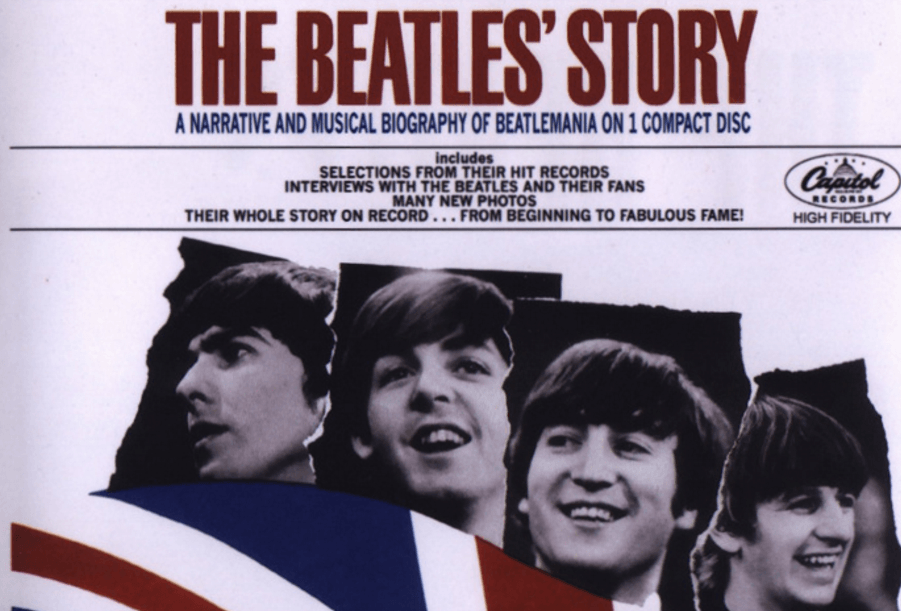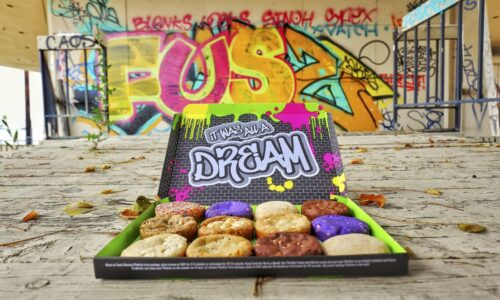The Beatles’ John Lennon was shot and killed today (December 8, 1980) in New York, by Mark David Chapman.
 By RareSoul.com By RareSoul.com |
The future of pop music was forever changed in Liverpool, England when Paul McCartney and John Lennon met.
The Del-Vikings
John Lennon was fronting a band named The Quarrymen in 1957, when the group hosted a performance at St. Peters Church. A young Paul McCartney was in the crowd, while John Lennon attempted to sing the Doo-Wop classic “Come Go With Me,” by The Del-Vikings.
The Del-Vikings were an inter-racial Doo-Wop group that was formed in 1955 in Pittsburgh, Pennsylvania. The group recorded for the Fee Bee label and Dot Records, who took over the distribution when the single took off.
In 1957, “Come Go With Me” stayed at the top of the charts for 31-weeks and peaked at #3 on the R&B charts and #4 Pop. As for The Quarrymen, John Lennon had a difficult time attempting to sing “Come Go With Me” according to Quarrymen group members.
Although they met that evening, Paul McCartney would not join The Quarrymen until several weeks later and the origins of The Beatles began (they were also called Johnny & The Moondogs).
[T]he Beatles’ initial records were released on Vee Jay, a pioneering black owned label that was cashing in, prior to Motown’s unprecedented success.
Vee Jay was founded by Vivian Carter (Vee) and her husband James Bracken (Jay) in 1952, in Gary, Indiana. After a move to Chicago, the label hit big by signing acts like Jerry Butler, Curtis Mayfield & The Impressions, The Staple Singers, Gene Chandler, The Spaniels and Frankie Valli & The Four Seasons, among others. The Beatles

“Trans-Global (an EMI affiliate), a company over there had a #1 record and they asked us if we wanted it, and of course we wanted it,” Vee Jay’s A&R/producer Calvin Carter told Goldmine. “It was ‘I Remember You,’ by Frank Ifield. We took the record, and as a throw in, they had a group and asked us if we would take them, too. The group turned out to be The Beatles, and we got a five-year contract on the Beatles as a pickup on the Frank Ifield contract.”
“Please Please Me”/”Ask Me Why” was the first Beatles single Vee Jay released in the United States. The group’s name is misspelled on early runs as “The Beattles.”
In 1963, Vee Jay was in turmoil as a record label, and it’s distributor, EMI, wanted The Beatles back for obvious reasons. The group’s sudden success resulted in lawsuits to get them off Vee Jay and back to Capitol, which released The Beatles’ subsequent records.
“They got an injunction against us seemingly every week. They would get an injunction against us on Monday and we would get it off on Friday, then we’d press over the weekend and ship on Monday.” – Vivian Carter, “Chicago Soul.”
In 1964, Vee Jay made $15 million dollars, but lost most of it thanks to bad bets on artists they signed. Label execs were also known as high rollers, who wouldn’t think twice about dropping $200,000 during parties in Las Vegas as well as gambling sessions with tens-of-thousands of dollars that would last for days.
The same year they lost The Beatles for good. In the end, Vee Jay ended up owing $1.6 million to creditors and another $1 million in unpaid taxes.
Vee Jay filed for bankruptcy in 1966.
EMI and Capitol have made billions since then, because The Beatles have sold over 600 million albums.
“If the deal had been maintained, it would have been Vee-Jay, owned by its creators, a black couple who originally ran a small record shop in Gary, Indiana, that made the initial profits from the biggest musical act in history rather than Capitol, owned by EMI, which called itself ‘The greatest recording company in the world.” – Rock Critic Dave Marsh in the book “The Beatles’ Second Album.”
[youtube https://www.youtube.com/watch?v=he0B0VMxCsw]





